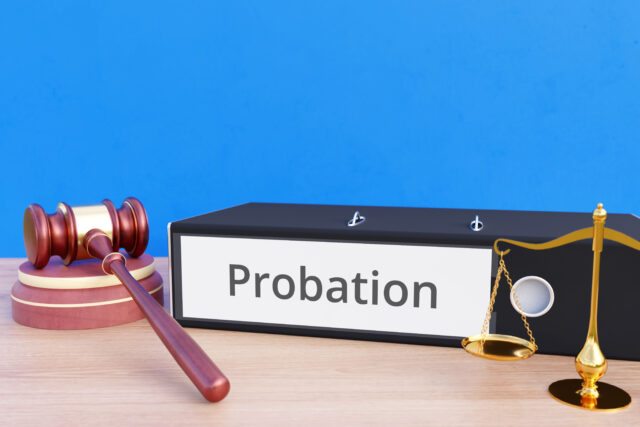In the complex world of the legal system, questions about the classification of domestic violence remain particularly prevalent. Many wonder, “Is domestic violence considered a felony?” This is a crucial inquiry, as the answer significantly impacts the lives of those involved.
Throughout this comprehensive guide, we will delve into the intricacies of domestic violence and its standing within criminal law. Our exploration will span vital questions that shed light on the circumstances, penalties, and protective legal measures related to domestic violence cases.
By demystifying the legal categorization, severity, and repercussions of such acts, we empower you to understand how the law views and handles these profoundly personal and severe offenses.
Whether you’re seeking knowledge for personal, professional, or academic reasons, continue reading to uncover the multifaceted relationship between domestic violence and felony law.
What Determines if Domestic Violence is Classified as a Felony?
Domestic violence is a term that encompasses various forms of abuse within a domestic setting, such as between spouses, intimate partners, or family members. The determination of domestic violence as a misdemeanor or a felony largely hinges on several key factors:
- Severity of the Injury: If the victim sustains significant bodily injury, the act may escalate to a felony charge.
- Use of a Weapon: The involvement of a weapon during the incident can lead to more severe charges.
- Prior Offenses: Individuals with previous convictions for domestic violence or related crimes may face felony charges upon reoffending.
- Victim’s Status: Certain states have special considerations if the victim is a minor, an elderly individual, or a pregnant woman.
State Laws vary by jurisdiction; some states have specific thresholds or circumstances that delineate felonies and misdemeanors.
An incident that starts as a misdemeanor can later be reclassified as a felony due to emerging details regarding the elements above. The judicial system aims to match the severity of the charge with the gravity of the offense. An experienced attorney can offer more personalized information based on the specifics of a case and the laws of the relevant jurisdiction.
Examples of Scenarios that Might Escalate to a Felony:
- An altercation that results in broken bones or hospitalization of the victim.
- Use of a deadly weapon.
- A repeating pattern of abuse where the aggressor has a history of violence.
- Situations where children are present or directly harmed.
Understanding the variability of domestic violence charges is essential in grasping how the judicial process unfolds in such serious matters.
How Do Misdemeanor and Felony Domestic Violence Charges Differ?
The distinction between misdemeanor and felony domestic violence charges is critical, with profound implications for the accused, the victim, and their shared community. The primary differences between the two classifications include:
- Legal Penalties: Felony convictions result in harsher penalties, including longer prison sentences, higher fines, and stricter probation terms.
- Criminal Record Impact: A felony conviction carries a more severe stigma and can affect one’s civil liberties, such as the right to vote or own firearms.
- Trial Proceedings: Felony charges may lead to a grand jury hearing and more formal trial procedures.
To illuminate these differences further, let’s examine the typical consequences attached to each type of charge:
Misdemeanor Domestic Violence Penalties:
- Jail time, often less than a year.
- Probation.
- Mandatory counseling or anger management classes.
Felony Domestic Violence Penalties:
- State prison sentences, potentially for several years.
- Larger monetary fines.
- Possible lifetime loss of certain civil rights.
Texas defines misdemeanor and felony offenses differently, with factors such as the nature of violence, injury extent, and prior criminal history guiding charge classification. The varying degrees of charges underline the need for a nuanced legal approach to domestic violence.
What Are the Legal Repercussions of a Domestic Violence Felony Conviction?
The consequences of a felony conviction for domestic violence are far-reaching and severe. They extend beyond immediate penalties to affect various aspects of an individual’s life. Critical legal repercussions include:
- Incarceration: Lengthy prison sentences are typical for felony convictions, which may span years depending on the case.
- Fines and Restitution: Convicts may face hefty fines and be required to compensate victims for medical expenses, counseling, or property damage.
In light of additional consequences, the gravity of a felony conviction becomes evident:
- Probation or Parole: Individuals may undergo strict supervision with various imposed conditions after incarceration.
- Loss of Rights: Convicted felons may lose voting privileges, firearm possession rights, and eligibility for specific licenses.
The holistic implications of a felony conviction are essential to understand when navigating the aftermath of domestic violence disputes within the legal system.
Can a Domestic Violence Felony Charge Be Reduced or Expunged?
Those accused of felony domestic violence often question whether their charge can be reduced or expunged. While challenging, it is possible under certain circumstances:
- Plea Agreements: Early in the legal process, a plea bargain may reduce a felony to a misdemeanor if the prosecution agrees.
- Sufficient Evidence has surfaced: If new Evidence significantly weakens the case, charges may be downgraded.
- Rehabilitation: Demonstrated rehabilitation may persuade a court to reconsider the severity of the charge.
Expungement is the legal process of sealing or erasing a criminal record. It is highly dependent on state laws and typically involves:
- Eligibility Requirements: The case must be dismissed prior to a plea or the defendant must be found NOT GUILTY.
- Court Petitions: An individual must file a petition or application for expungement in court.
- Judicial Discretion: A judge will consider the petition against the details of the case and any progress made by the offender.
Reducing or expunging a charge can be complex, requiring a savvy legal strategy and a thorough understanding of jurisdictional statutes.
What Are the Long-Term Impacts of a Felony Conviction for Domestic Violence on Employment?
A felony conviction for domestic violence can dramatically hinder employment prospects. Employers may be wary of hiring individuals with violent criminal records due to concerns about workplace safety and liability. Other long-term impacts include:
- Background Checks: A felony record will appear on most background checks, prompting potential discrimination in hiring decisions.
- Professional Licenses and Certifications: Many professions, particularly healthcare, law enforcement, and education, may deny certification to felons.
- Career Advancement: A felony record may prevent promotions or lead to current job termination due to company policies.
Impactful societal and personal ramifications underscore the importance of robust legal defense and rehabilitation efforts for those charged with domestic violence felonies, aiming to secure a better future post-conviction.
How Does Domestic Violence Felony Affect Child Custody and Visitation Rights?
When a parent is convicted of a felony domestic violence charge, child custody and visitation rights are often significantly impacted. Courts prioritize the child’s safety and well-being, leading to the consideration of the following:
- Custodial Rights: A felony conviction can result in the loss of physical and legal custody of a child.
- Visitation: Visitation rights may be severely restricted or require supervision.
- Parenting Plans: Courts may enforce specific parenting plans to protect the child from potential harm.
The court’s analysis often incorporates the offense’s nature, the child’s presence during the incident, and the convicted parent’s efforts at rehabilitation.
What Kind of Evidence is Needed to Prove Domestic Violence as a Felony?
Proving domestic violence as a felony requires compelling Evidence that demonstrates the seriousness of the offense. Common types of Evidence include:
- Medical Records: Documentation of the victim’s injuries.
- Police Reports: Official accounts of the incident and any arrests made.
- Witness Testimonies: Accounts from individuals who have observed the abuse or its aftermath.
Additionally, photographic evidence, 911 call recordings, and the defendant’s prior history of violence can all be pertinent in bolstering the prosecution’s case, underscoring the multi-faceted nature of evidence collection in domestic violence cases.
Are There Mandatory Arrest Policies for Felony Domestic Violence Cases?
Many jurisdictions have mandatory arrest policies in place for domestic violence situations, mainly when there’s evidence suggesting a felony offense. This policy ensures:
- Immediate Intervention: Removing the alleged offender from the situation to secure the victim’s safety.
- Legal Action: Prompt legal action, including arrest and potential charges if probable cause is found.
Understanding the scope and implications of these policies is essential for both victims and defendants navigating the legal system.
How Does the Presence of a Protective Order Influence a Domestic Violence Felony Case?
The issuance of a protective order, also known as a restraining order, plays a significant role in a domestic violence felony case by:
- Setting Legal Boundaries: Establishing clear restrictions and conduct guidelines for the alleged offender.
- Influencing Bail Conditions: A protective order may affect the terms and eligibility for bail.
- Affecting Case Outcome: Violating a protective order can compound charges and influence case proceedings.
Protective orders are an essential tool in safeguarding victims and informing court decisions.
Can Psychological Abuse Be Classified as a Felony in Domestic Violence Situations?
Determining whether psychological abuse constitutes a felony in domestic violence cases rests on several factors, including:
- Severity and Duration: Ongoing and severe psychological abuse may reach felony status under specific state laws.
- Documented Harm: Evidence of significant mental health impacts on the victim can elevate the seriousness of the case.
- Supplemental Criminal Acts: If psychological abuse accompanies other criminal behavior, felony charges may be more likely.
The legal recognition of psychological harm as a component of domestic violence reflects the evolving understanding of abuse’s diverse forms.
Conclusion
The intersection of domestic violence and felony law is complex and highly contingent on the specifics of each case and the statutes in each jurisdiction.
We’ve examined a range of questions highlighting the factors that influence whether domestic violence is categorized as a felony, the differences between misdemeanor and felony charges, the severe legal and personal repercussions of a felony conviction, and the potential for charge reduction or expungement.
Felony domestic violence convictions carry long-term effects on employment, family dynamics, and one’s ability to reintegrate into society. Understanding these consequences and the nature of evidence required to prove such a charge is vital for anyone touched by this topic.
If you or someone you know is charged with a crime of family violence or domestic violence, it’s critically important to seek professional legal counsel. For further information, or to speak with an expert on the topic, contact Spangler Law today.



